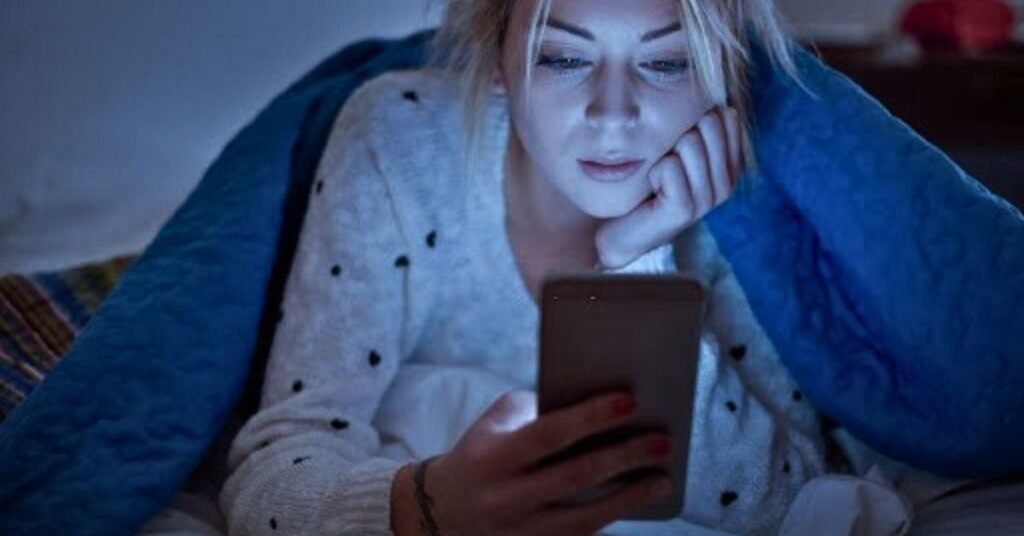Blue light is a type of visible light that is emitted by the sun, as well as by many electronic devices, such as computers, smartphones, home lighting and TVs. Blue light has a shorter wavelength and higher energy than other types of visible light, which means that it can penetrate deeper into the eye.
Exposure to blue light can have a number of harmful effects on the eyes, including:
- Age-related macular degeneration (AMD). AMD is a leading cause of vision loss in older adults. Blue light can damage the retina, which is the light-sensitive tissue at the back of the eye. This damage can lead to AMD, which can cause blurry vision, blind spots, and eventually, even total blindness.
- Cataracts. Cataracts are cloudy areas that develop in the lens of the eye. Blue light can damage the lens, which can increase the risk of developing cataracts. Cataracts can cause blurry vision, glare, and sensitivity to light.
- Dry eyes. Blue light can cause the eyes to produce less tears, which can lead to dry eyes. Dry eyes can cause discomfort, redness, and irritation.
- Eye strain. Blue light can cause the eyes to become tired and strained. Eye strain can cause headaches, blurred vision, and fatigue.
- Mental Health. Research suggests a potential link between excessive blue light exposure and mental health issues such as depression and anxiety. Disrupted sleep patterns, as mentioned earlier, can contribute to mood disorders. Additionally, the constant exposure to digital devices and the fast-paced nature of our digital lives can contribute to stress and feelings of overwhelm. Managing blue light exposure can be one aspect of maintaining good mental health.
In addition to the harmful effects on the eyes, blue light can also disrupt sleep. Blue light can suppress the production of melatonin, a hormone that helps regulate sleep. This can make it difficult to fall asleep and stay aslee Exposure to blue light in the evening can trick our brains into thinking it is still daytime, making it harder to fall asleep and disrupting the quality of our sleep. Prolonged sleep deprivation can lead to various health issues, including impaired cognitive function and increased risk of chronic conditions.
There are a number of things that you can do to reduce your exposure to blue light, including:
- Avoid using electronic devices in the hour before bedtime.
- Wear sunglasses that block blue light.
- Set the brightness of your electronic devices to a lower level.
- Use a blue light filter on your computer or smartphone.
By taking these steps, you can reduce your exposure to blue light and protect your eyes and sleep health.
Here are some additional tips to help you reduce your exposure to blue light:
- Get outside during the day. Natural sunlight helps to regulate your body’s circadian rhythm and can help to reduce your sensitivity to blue light at night.
- Make sure your bedroom is dark and quiet. Darkness helps your body to produce melatonin, which can help you to fall asleep and stay asleep.
- Avoid caffeine and alcohol before bed. These substances can interfere with sleep.
- Create a relaxing bedtime routine. This could include taking a warm bath, reading a book, or listening to calming music.
- Take regular breaks: Frequent breaks from screen time can help reduce eye strain and give your eyes a chance to rest.
- Opt for warm lighting: Use warm-toned or low-intensity lighting in the evening to create a more relaxed atmosphere and minimize blue light exposure.
- You can get blue light blocking lighting in your home , specialy in baedroom, supply is currently limited , you can look for online purchase
Conclusion:
Blue light has become an integral part of our modern lives, but it is crucial to recognize the potential harm it can cause. By understanding the harmful effects of blue light and implementing strategies to minimize exposure, we can protect our sleep, vision, and overall well-being. Being mindful of our screen habits and adopting healthier practices can contribute to a better-balanced and healthier lifestyle in our digital age.

